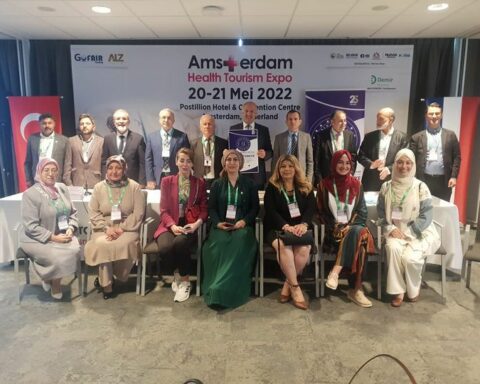Marital captivity occurs when a person is trapped in a religious marriage against her/his will because the marriage cannot be dissolved.
Recognising marital captivity
Do you recognise one or more of the following in your life or in that of someone close to you? (a) You want a divorce, but your partner refuses to cooperate; (b) You are afraid that (after the divorce) your ex-partner or your ex-partner’s family will not allow you to see your children; (c) You want to divorce because you and your partner fight all the time, but you feel trapped in your marriage; (d) You cannot start a new relationship because those around you disapprove; (e) In your community / country of origin, people see you as an unfaithful partner. As a result, you can no longer visit your family; (f) You cannot apply for your own travel document (ID-card, passport) without the consent of your (ex-)partner; (g) You cannot move freely or you are confined at home; (h) You feel more and more pressure, danger or you feel increasingly threatened; (i) Your family (in-law) controls what you do: they collect you from school or work while you do not want them to; (j) You are threatened and/or suffer from violence; (k) You have no understanding of your right of residence. If you recognise one or more of the above situations in your life or in that of someone else, it may be a case of marital captivity.
Risks in case of divorce
In a situation where religious divorce is obstructed, a person ends up in marital captivity. This happens in almost all religions. It is then often impossible to begin a new relationship or to remarry. This could be considered adultery by the religious community. If the family also perceives this as an affront to their honour, this situation can lead to violence. If forming a new relationship is possible, it is usually only possible outside the religious community and/or country of origin. The risk of violence and/or social exclusion often remains. In some countries, for example in Egypt and Iran, the religious marriage is the (only) legal marriage. These countries do not automatically recognise divorce under Dutch law. This is because the country considers the manner in which the divorce was granted not to be in accordance with their public order and morals. If a woman remarries or starts a relationship with another person and she is not yet officially divorced, she runs the risk of prosecution for bigamy or adultery in these countries. One can be legally divorced in the Netherlands, but still be married in the country where the marriage took place. In such cases, a procedure for recognition of a Dutch divorce, a marriage annulment or a divorce settlement must usually be commenced in the country where the marriage was conducted. This applies to many countries where religious marriage law is the only one applicable and therefore legal, such as Egypt, the Philippines, Iran, Israel, Morocco, Pakistan and Syria.
The Criminalisation of ‘forced continuation of marriage’
In the Netherlands, everyone has the right to live his or her life as she or he sees fit. Freedom of religion and/or philosophy of life is important. Freedom of choice and self-determination, for example choosing your own partner or getting a divorce, is not always a matter of course. This situation may even be at odds with self-determination. When this applies to a serious extent, we speak of harmful practices. It may involve marital captivity, forced marriages, forced abandonment abroad, forced isolation, genital mutilation or (other) violence in the name of family honour. Women are often the victims. The law is clear on such forms of coercion and violence: they are punishable (including under Section 282, unlawful deprivation of liberty, and Section 284, compulsion, of the Dutch Criminal Code). Since 1 July 2013, ‘forced continuation of marriage’ has also been covered by the general coercion article (Article 284) of the Dutch Criminal Code. Criminalisation is not limited to the Netherlands. Even when a forced marriage or marital captivity takes place abroad, prosecution is possible on the basis of this penal provision (Article 7 of the Dutch Criminal Code).







